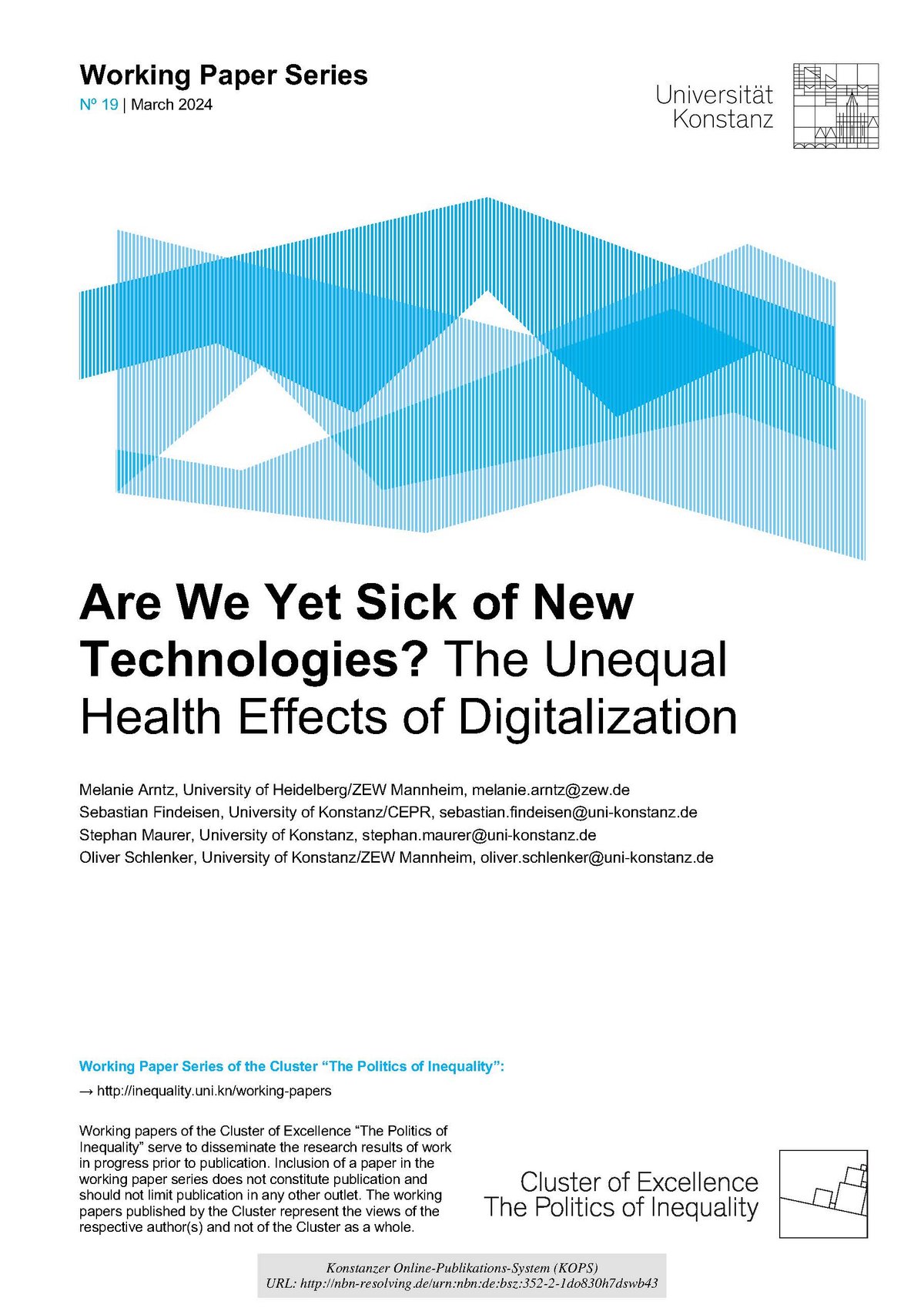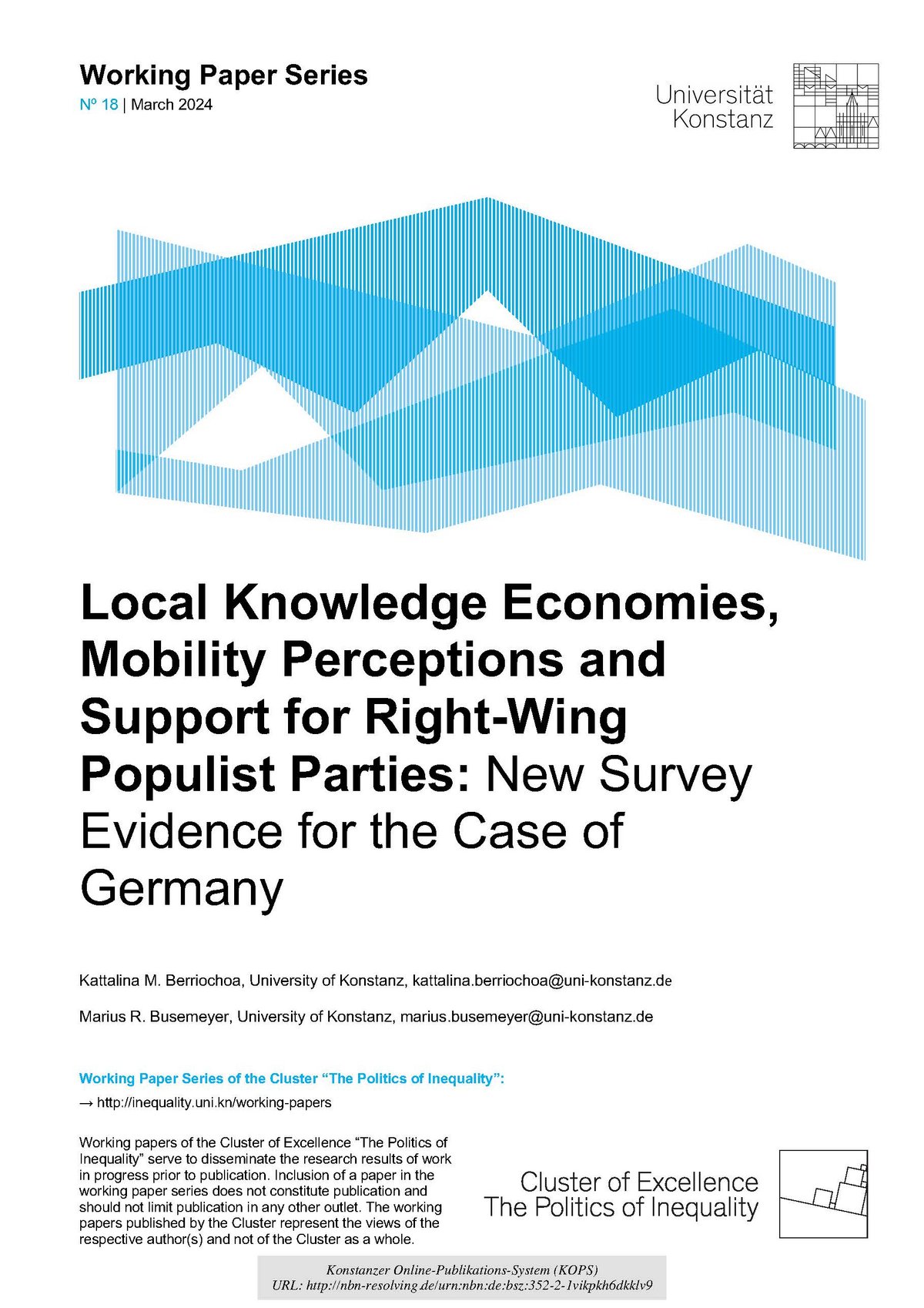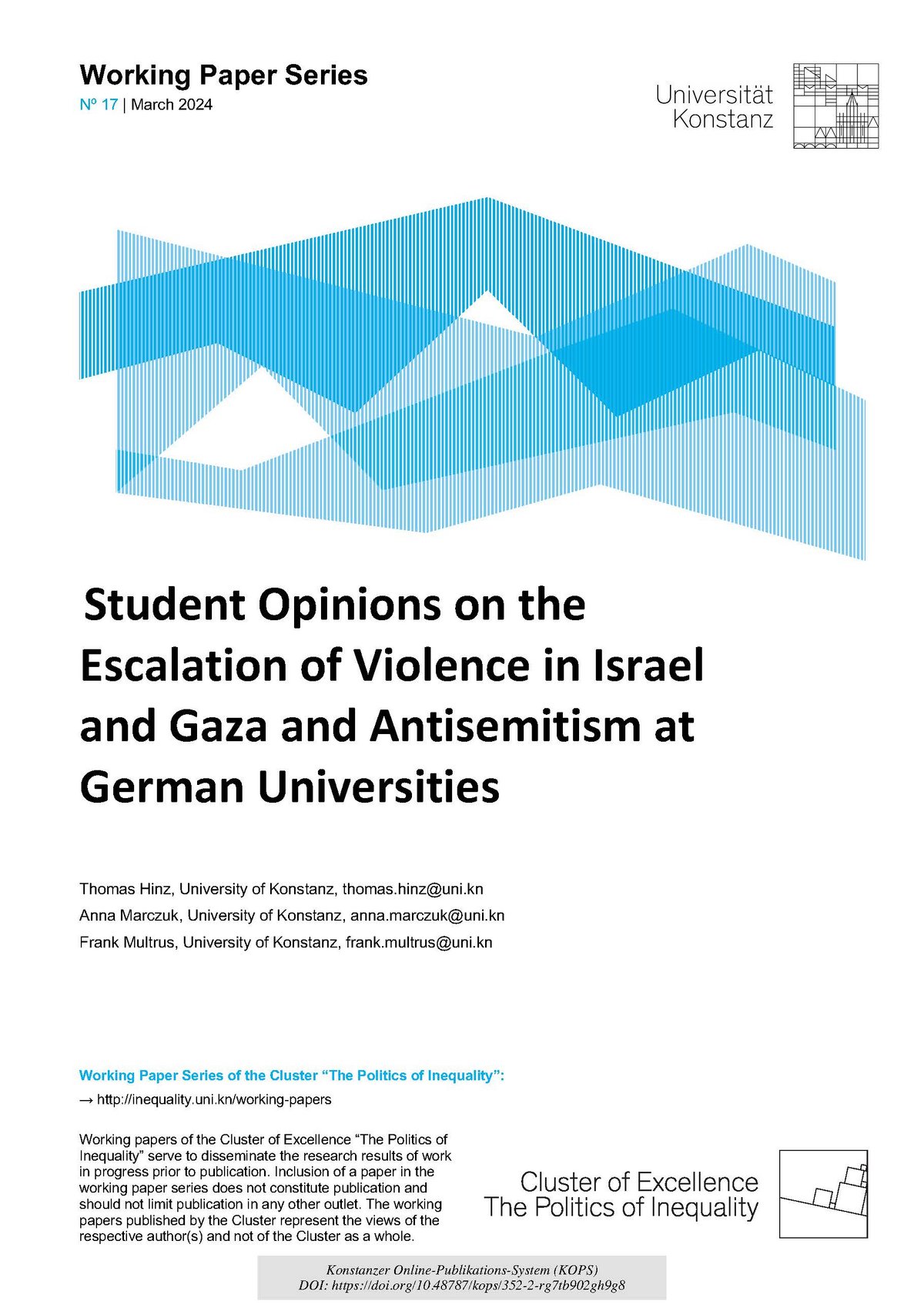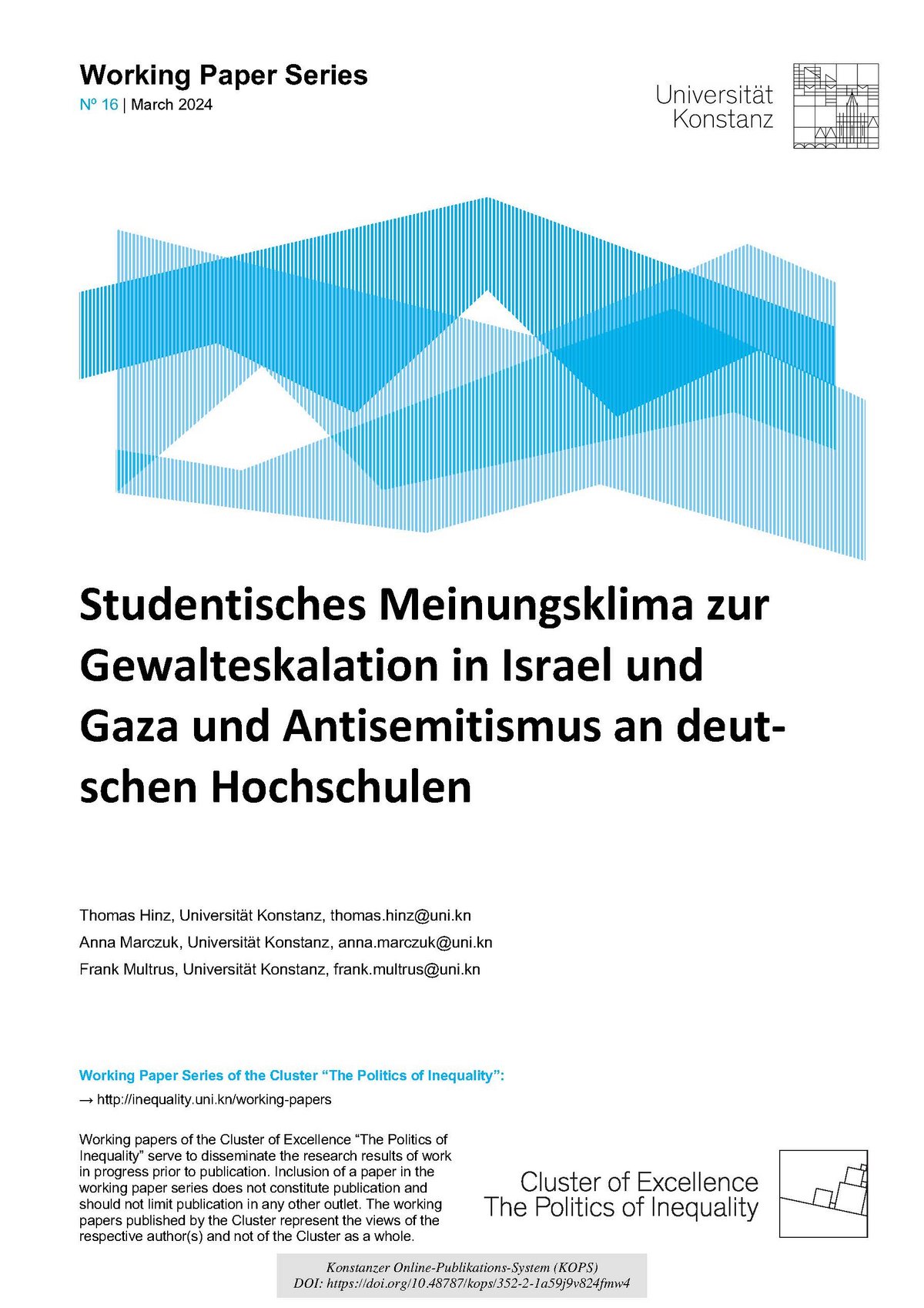Working Papers of the Cluster of Excellence "The Politics of Inequality" serve to disseminate the research results of work in progress prior to publication. Inclusion of a paper in the working paper series does not constitution publication and should not limit publication in any other outlet. The working papers published by the Cluster represent the views of the respective author(s) and not of the Cluster as a whole.

Working Paper Series N° 19 | March 2024
Melanie Arntz et al. (2024)
Abstract:
This study quantifies the relationship between workplace digitalization, i.e., the increasing use of frontier technologies, and workers’ health outcomes using novel and representative German linked employer-employee data. Based on changes in individual-level use of technologies between 2011 and 2019, we find that digitalization induces similar shifts into more complex and service-oriented tasks across all workers, but exacerbates health inequality between cognitive and manual workers. Unlike more mature, computer-based technologies, frontier technologies of the recent technology wave substantially lower manual workers’ subjective health and increase sick leave, while leaving cognitive workers unaffected. We provide evidence that the effects are mitigated in firms that provide training and assistance in the adjustment process for workers.

Working Paper Series N° 18 | March 2024
Kattalina M. Berriochoa and Marius R. Busemeyer (2024)
Abstract:
The rise of knowledge economies is transforming labor markets with substantial socio-political implications. Recent literature suggests that these economies foster voters who, due to the current or potential experience of upward mobility, are less likely to support far-right parties. Using novel survey data for the case of Germany, we examine this association between the local share of knowledge-based economic activity and individual mobility perceptions and vote choices. We find that individual mobility perceptions are – somewhat counterintuitively – more negative in thriving local knowledge economies (LKEs). We also examine how these local economic contexts and mobility perceptions explain vote choices, focusing on support for the Greens and the right-wing populist AfD, finding that electoral support for the Greens is strongly and positively associated with well-developed LKEs and less influenced by mobility perceptions, while the latter matters more in the case of support for the AfD. Yet, we also find that thriving LKEs can reinforce the impact of static mobility perceptions increasing support for the AfD. Our analysis shows that LKEs, while a sign of positive economic growth, can also lead to friction between individuals with different perceptions of mobility likely reflecting the winners and losers of technological and labor market changes at the local level.

Working Paper Series N° 17 | March 2024
Thomas Hinz, Anna Marczuk and Frank Multrus (2024)
Abstract:
After Hamas’s attack on Israel and the subsequent military response, the number of antise- mitic incidents in Germany has risen significantly – including at universities, according to many reports. The media report on anti-Israeli sentiments, and Jewish students are threatened and attacked. Funded by the Federal Ministry of Education and Research (BMBF), the Research Group on Higher Education at the University of Konstanz conducted a survey among students in December 2023 to assess the current climate of opinion on the war in Israel and the Gaza Strip, the willingness to protest in Ger- many, the perception of antisemitism in society and at universities and, finally, antisemitic attitudes among students. Over 2,000 students enrolled at German universities in the winter semester 2023/24 took part. The findings can be compared with the results of a population survey conducted at the same time.

Working Paper Series N° 16 | März 2024
Thomas Hinz, Anna Marczuk und Frank Multrus (2024)
Abstract:
Nach dem Angriff der Hamas auf Israel und der militärischen Reaktion Israels stieg die Anzahl antisemitischer Vorfälle in Deutschland deutlich an – etlichen Berichten zufolge auch an Hochschulen. Medien berichten über israelfeindliche Stimmungen, jüdische Studierende werden bedroht und angegriffen. Gefördert durch das BMBF, führte die AG Hochschulforschung der Universität Konstanz im Dezember 2023 eine Umfrage unter Studierenden durch, um in der aktuellen Situation das Meinungsklima zum Krieg in Israel und im Gazastreifen, die Protestbereitschaft in Deutschland, die Wahrnehmung von Antisemitismus in Gesellschaft und Hochschule und schließlich antisemitische Haltungen unter Studierenden abschätzen zu können. Teilgenommen haben über 2.000 Personen, die im Wintersemester 2023/24 an deutschen Hochschulen eingeschrieben waren. Die Resultate können mit Ergebnissen einer zeitgleich durchgeführten Bevölkerungsumfrage verglichen werden.

Working Paper Series N° 15 | Februar 2024
Henning Hermes et al. (2024)
Abstract:
We investigate public preferences for equity-enhancing policies in access to early child care, using a survey experiment with a representative sample of the German population (n ≈ 4, 800). We observe strong misperceptions about migrant-native inequalities in early child care that vary by respondents’ age and right-wing voting preferences. Randomly providing information about the actual extent of inequalities has a nuanced impact on the support for equity-enhancing policy reforms: it increases support for respondents who initially underestimated these inequalities, and tends to decrease support for those who initially overestimated them. This asymmetric effect leads to a more consensual policy view, substantially decreasing the polarization in policy support between under- and overestimators. Our results suggest that correcting misperceptions can align public policy preferences, potentially leading to less polarized debates about how to address inequalities and discrimination.
